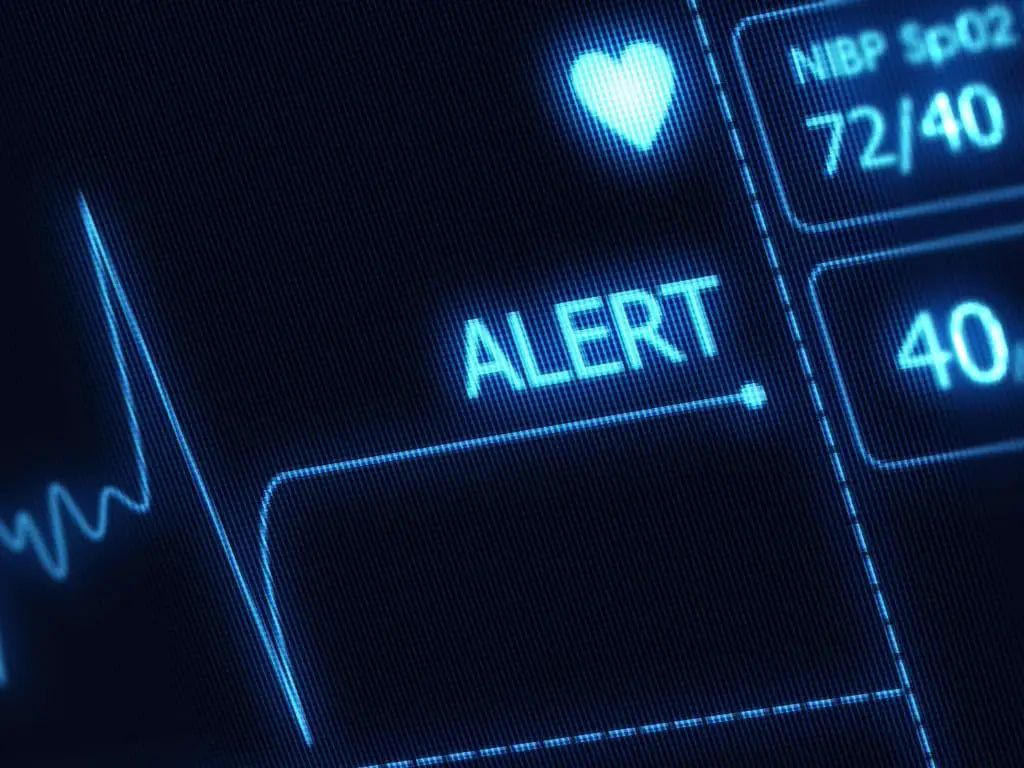Does Medicare Cover Life Alert?
With advancing age comes an increased risk of falls and medical emergencies. For older adults who live alone, getting immediate help in the event of an emergency can be difficult. This is where medical alert systems come in handy. These devices allow seniors to call for help at the push of a button.
But does Medicare cover the cost of medical alert systems like Life Alert? Medicare does not cover Life Alert or other medical alert systems as they do not meet the requirements for durable medical equipment (DME). However, some Medicare Advantage plans (Part C) offered by private insurers may provide coverage. Discounts or tax deductions may also be available for these systems.

Does Medicare Cover Medical Alert Systems?
Unfortunately, original Medicare does not cover medical alert systems. These devices do not meet Medicare’s definition of durable medical equipment (DME).
DME refers to items like hospital beds, wheelchairs, and oxygen tanks prescribed by a doctor for use in the home. Since medical alert systems are not considered medically necessary, Medicare Parts A and B will not help pay for them.
What are the Requirements for Medicare to Cover a Medical Alert System?
For Medicare to cover an item as DME, it must:
- Be able to withstand repeated use
- Serve a medical purpose
- Be deemed medically necessary by a doctor
- Not be useful in the absence of illness or injury
While medical alert systems serve an important role in keeping seniors safe, they are not prescribed and are useful even for healthy individuals. So Medicare does not consider them DME.
Are Medical Alert Systems Covered by Medicare Advantage Plans?
One option that may provide coverage is a Medicare Advantage plan, also known as Medicare Part C. These plans are offered by private insurers approved by Medicare.
Medicare Advantage plans must cover all Medicare Part A and Part B benefits. But they often include extra benefits not covered by original Medicare like vision, dental, and hearing care. Some plans may also cover medical alert systems, but coverage can vary.
Check with plans in your area to see if medical alert systems are a covered benefit. This is an important question to ask when evaluating Medicare Advantage plans.
How Can I Get a Discount on a Medical Alert System?
If you aren’t able to find a Medicare Advantage plan that covers medical alert devices, there are still ways to reduce costs:
- Look for sales and promotions. Medical alert companies periodically offer discounts, so time your purchase accordingly.
- Inquire about low-income options. Some companies offer discounts for those with limited means.
- Consider a used system. You can sometimes find gently-used systems for sale at reduced prices.
- Split the cost. If possible, split the monthly fee and installation cost with a family member.
- Use AARP membership for a discount. Many companies offer special pricing for AARP members.
Can AARP Members Get a Discount on Medical Alert Systems?
The American Association of Retired Persons (AARP) has partnered with several medical alert companies to offer discounts to members. For example, Life Alert offers 20% off for AARP members. With Medical Guardian, members can get free equipment and activation.
So if you’re an AARP member and interested in a medical alert system, be sure to inquire about potential savings. Just having an AARP membership may shave significant dollars off the purchase price.
Can Medical Alert Systems be a Tax Deduction?
The Internal Revenue Service (IRS) allows taxpayers to deduct qualified medical expenses that exceed 7.5% of their adjusted gross income. Medical alert systems prescribed by a physician for a medical condition may be deductible.
However, the cost must be primarily for the prevention or alleviation of that condition. Deductions apply to the taxpayer, their spouse, and dependents.
Consult with your tax professional to see if the cost of your medical alert system qualifies for deduction. Keep detailed records showing how the device was medically necessary.
How Much Do Medical Alert Systems Cost?
With all the different features and options, medical alert systems range in cost from $20 to $100 per month. Traditional landline-based systems tend to be cheaper while mobile and cellular-enabled devices cost more. There is also often an upfront fee for purchasing the equipment of $100 to $500.
Here are some common pricing factors:
- Connection type: Landline vs cellular
- Features: Fall detection, GPS tracking, medication reminders
- Service contract: Monthly fees vs annual payment
- Extra services: Additional help buttons, equipment insurance
To limit expenses, choose a basic system with the features you truly need. Compare pricing from multiple companies to find the best rate. And look into any discounts you may qualify for.
What are the Different Types of Medical Alert Systems?
There are a variety of medical alert systems available to help seniors maintain an independent lifestyle safely. The most common options include:
- Personal Emergency Response System (PERS)
- Mobile Emergency Response System (MERS)
How Does a Personal Emergency Response System (PERS) Work?
A PERS device consists of an in-home communicator that connects to a monitoring center via telephone landline or cellular service. The system includes a portable help button that can be worn as a wristband or pendant.
In an emergency, the user pushes the help button. This sends a signal to the in-home communicator which dials the monitoring center. Trained operators can speak to the user through the communicator and dispatch emergency personnel if needed.
Many PERS devices also detect falls automatically. This way help can be sent even if the user is incapacitated and unable to push the button.
What is a Mobile Emergency Response System (MERS)?
A MERS provides all the functionality of a traditional PERS device but uses cellular technology rather than a landline. This allows for use outside the home. These systems often incorporate advanced features like GPS tracking in case a user becomes lost.
Since no landline is required, MERS devices provide protection on the go. Some work worldwide so frequent travelers don’t have to sacrifice safety and security. Just make sure adequate cellular coverage is available.
What are the Benefits of Using a Medical Alert System?
Investing in a medical alert system provides increased safety, security and peace of mind for aging adults and their families.
How Can a Medical Alert System Provide Peace of Mind?
For those susceptible to falls and other emergencies, medical alert systems deliver significant peace of mind. Help is there at the push of a button so users can maintain an independent lifestyle without undue worry.
Children of older adults also experience reduced anxiety knowing their loved one has easy access to emergency assistance if needed. The whole family can rest easier.
How Does a Medical Alert System Enhance Independent Living?
Medical alert systems allow seniors to continue living in their own home safely. Without easy access to emergency help, family members might insist on a move to an assisted living facility. The devices provide confidence that help is available when needed.
Continuing to live at home maintains quality of life for older adults. Help from medical alert systems means they can enjoy lifetime familiarity and comfort rather than relocating.
How Do I Choose the Right Medical Alert System for Me?
With many products on the market, it’s important to weigh a variety of factors when selecting a medical alert system.
What Should I Look for in Durable Medical Equipment (DME)?
- Reliable monitoring center: Choose a reputable company with robust protocols, trained operators, and backup power.
- Signal range: Select a system that works throughout the home and yard. Upgrade to cellular if you’re often away from home.
- Battery backup: In case of power outage, backup batteries should provide at least 24 hours of coverage.
- Durability: Opt for water-resistant, tamper-proof equipment that can withstand drops and falls.
How Can I Ensure the Medical Alert System Provides Safety and Security?
- Automatic fall detection: Many systems can automatically send an alert if a fall is detected, even if you can’t push the button.
- Location services: Mobile systems with GPS allow emergency responders to locate you quickly.
- Two-way communication: A device that allows operators to talk to you provides an added layer of safety.
Prioritize your needs and compare providers to find a reasonably-priced medical alert system that offers peace of mind and enables greater independence. Although Medicare doesn’t provide coverage, discounts and alternative insurance options exist. A medical alert system is a worthwhile investment in safety and overall wellbeing.
Frequently Asked Questions
-
Does Medicare Cover Life Alert type devices?
Seniors often have questions about coverage under Medicare Part B for durable medical equipment. Medicare does not consider medical alerts to fall under this coverage.
-
Is Life Alert tax deductible?
The tax-deductible dental and medical expenses don’t include medical alert systems. In certain situations, however, senior citizens may be eligible to deduct these costs. Medical alert systems allow seniors to remain independent and not be at risk of their safety.
-
Does Life Alert have GPS?
GPS is included. All coverage. GPS can locate you anywhere in America that GSM cellular phone networks operate. easy.
-
How much does Life Alert cost a month?
How much does Life Alert cost? The base unit, along with the pendant and $95. activation fee will cost you $49.95 per month. The price of the base unit and a pendant will be $49.95 per month. There is an activation fee $198 for any additional devices, such as the help button or GPS.
-
Does Medicare pay for Philips Lifeline?
Although Medicare doesn’t cover Philips Lifeline and other medical alert system, if you have Medicare Advantage your plan may cover some of the cost. You can save money by purchasing a medical alert system through our guide How to Get a Medical Alert Systems for Free.
-
Is there anything better than Life Alert?
Bay Alarm Medical Guardian, MobileHelp or Aloe Care Health might be better options if you are looking for an alert system that detects falls and has modern technology.
-
Does Medicare pay for fall buttons?
A button on the device will typically send a signal to an alert company to notify them that you require assistance. These devices are useful in providing peace of mind, assistance for emergency situations and can be used by Medicare as medical devices.
-
Does AARP cover medical alert systems?
Through an exclusive partnership between Lifeline and AARP, the simple answer to this question is “Yes.” AARP members receive a discounted rate on medical alert system through its membership. Membership in AARP includes a 15% discount off the monthly fee for medical alert system, as well as free shipping and activation.
-
Is Life Alert worth the money?
Life Alert, despite its high monthly fees and installation costs, is an excellent option for reliable, simple protection. These devices will last for many years, so it is worth looking into if Life Alert suits your needs.
-
Do you need WIFI for Life Alert?
Is Life Alert dependent on Wifi? Life Alert coverage is available in all areas of your house without the need for wifi. You can access the Life Alert In Home medical alert system as long you have a phone line.






